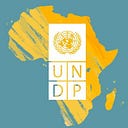Restoring hope for refugees and hosting communities in Uganda
In Uganda, refugees and asylum seekers are entitled to work, have freedom of movement and can access social services such as health and education. These progressive policies have led over 1,3 million people in search of safety and peace to cross the country’s borders (UNHCR, August 2019), making it one of the largest refugee hosting countries in the world and the first in Africa.
Yet, as these numbers continue to increase, refugees and host communities alike face a myriad of security, social, environmental and economic challenges. Over 80% of new refugees in Uganda are women and children who are exposed to such risks as abuse, neglect, violence and gender-based violence.
Empowering women
For Jackie Kahindo, a mother of 6 who fled violence in the Democratic Republic of Congo, more hardship came when she was abandoned by her husband soon after their arrival in the Kyangwali refugee settlement in Western Uganda. Without any income to provide for her family and maintain her house, Jackie had to resort to washing clothes for customers and growing cassava.
Against this backdrop, UNDP Uganda launched a “Cash for Work” initiative in partnership with the UN Central Emergency Response Fund (CERF) and civil society partners. The initiative provides emergency employment to over 1,700 vulnerable refugees and host communities members in 8 districts to support their basic needs. Activities include road maintenance, tree planting, pit digging, garbage collection and cleaning.
Bringing communities together
“I was lucky to be selected as a beneficiary … I started seeing things positively and became happier because my dream of starting a sewing business would come true”
— Josephine, a Ugandan resident of Kyangwali, struggled to feed her family of 4 with her small subsistence farming. Her yields were poor, producing on average 50,000 Uganda shillings (around US$13) a month, too little to get the sewing machine she hoped would make her life and that of her family better.
“When the project paid me for the first 20 days of road work, I went straight away to buy a sewing machine. I am positive that from that day, my life won’t be the same.”
Empowered by the initiative, Josephine has even bigger dreams:
“I plan to give hands-on training on tailoring for my fellow women who are in the same situation. ”
UNDP Uganda also supports cash for work beneficiaries by providing financial literacy training and encouraging sustainable income management through Village Savings and Loan Associations.
“ To my knowledge, this is the first project of its kind in the Kyangwali sub-county. Often, organizations only work in the refugee settlement, but as a sub-county we are happy that our communities are benefiting. I have personally witnessed communities using the money to buy items that create positive change in lives.” - says Munguriek Jonathan who works as a subcounty officer in Kyangwali, Kikuube district.
For Jackie, who worked alongside Josephine on the Kyangwali road rehabilitation, the ‘Cash for Work’ initiative provided much-needed funding to pay for her children’s school fees and clothes. Renovating her house and equipping it with solar panels to light it up at night was also within the range of her new income.
“I consider this God’s intervention because there are so many poor people in this settlement and yet I was identified among them”, she says.
The “Cash for Work” initiative in Kyangwali has its place in the Comprehensive Refugee Response Framework’s and the Global Compact for Refugees’ idea, that refugees should be included in the communities from the very beginning.
This idea is also at the heart of the first the first Global Refugee Forum, taking place December 16–18, 2019, that will look at solutions to tackle the strain posed by refugees’ influx on host communities worldwide.
